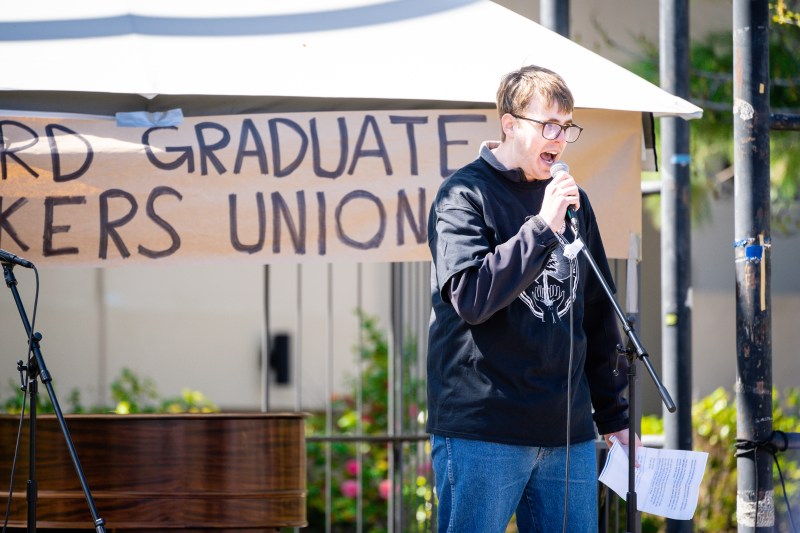Three representatives from the Stanford Graduate Workers Union (SGWU) attended the Tuesday Graduate Student Council (GSC) meeting to gather support for graduate student fellows amid the ongoing bargaining process with the University.
SGWU hopes for graduate student fellows affiliated with the union to receive the same protections as individuals in a Teaching Assistant (TA) role. Currently, the University does not categorize fellows under the same labor protection laws as they are not considered workers.
Jason Anderson, a fifth-year aeronautics and astronautics Ph.D. student, Rory O’Dwyer, a fourth-year physics Ph.D. student, and Kamilla Nazirkhanova, a fourth-year electrical engineering Ph.D. student, addressed the council on behalf of the SGWU.
The council discussed whether fellowship should be considered a job or simply academic since the two roles hold different implications. SGWU representatives noted that other univerisities likethe University of Chicago already expanded union protections to for fellows. They argued that Stanford lags far behind by exploiting the students who are under fellowship.
Emmit Pert, co-chair of GSC and fourth-year chemistry Ph.D. student, said he personally supports the cause of the SGWU, but cautioned that there’s a lack of clarity on how much the GSC can support the SGWU.
Many GSC members cited multiple stories of Ph.D. students being forced out of their programs due to lack of funding. While discussing guaranteed funding for Ph.D. students, O’Dwyer raised a that former provost Persis Drell promised five years of guaranteed funding for Ph.D. students. According to O’Dwyer and the SGWU representatives, the University hasn’t followed through on this commitment.
Councilors also addressed previously proposed amendments to the Student Honor Code and Stanford Student Conduct Charter. The Student Honor Code discusses three levels of reviews at the discretion of the Stanford Office of Community Standards — Alternative Resolution, Mid-Level Review and High-level Review.
The Alternative Resolution level of review aims to be educational and restorative, provided the student takes ownership of the violation. Mid and high-level reviews are investigatory and are caused by substantial breaches in honor code policy by students.
The GSC debated amendments to the charter and Honor Code that would pertain to each review level and the maximum punishment that would be faced in each of these levels. According to councilors, instances like incorrect citations would be subject to Alternative Resolution, but complete plagiarism of a thesis or dissertation would be subject to high-level review that could lead to expulsion.
The councilors discussed what types of plagiarism would be considered for mid-level versus high-level review, with theses required for graduation included in the latter level. Through these amendments, the GSC hoped to provide clarification on probable disciplinary action to individuals who violated the honor code and increase transparency between students and OCS.
The GSC also passed a bill appointing Whit Froehlich J.D. ’24 to the vacant Associated Students of Stanford University (ASSU) librarian position until June 30, 2024, or until the next ASSU Librarian is appointed.
The librarian keeps thorough records of the ASSU’s affairs. The bill was authored by Sophia Danielpour, ASSU Executive President, since the role is appointed by the president and confirmed by the Undergraduate Senate and Graduate Student Council. The bill was passed unanimously at GSC and awaits approval by the Undergraduate Senate (UGS).
